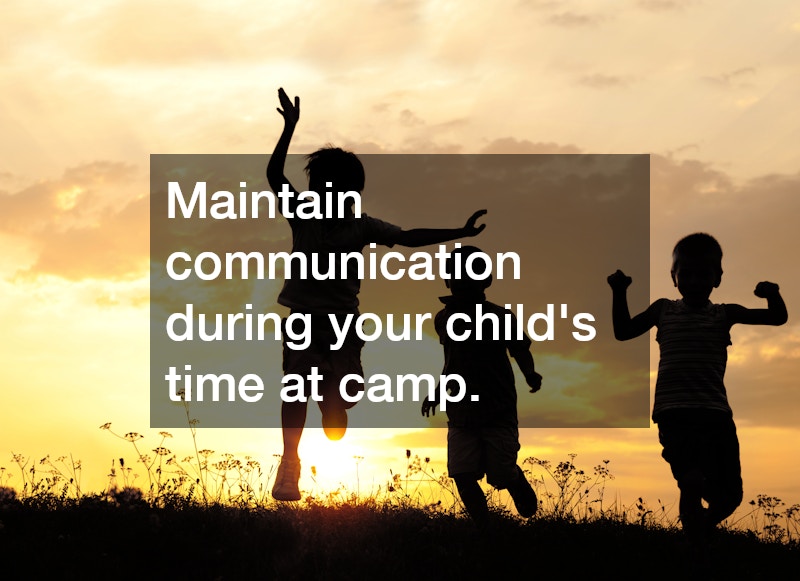As summer approaches, parents begin the challenging yet exciting task of choosing the best local summer camps for their children. Summer camps offer an array of benefits, from skill development to making lifelong friendships, all while fostering a sense of independence and self-confidence. With options ranging from arts and sports camps to academic and adventure programs, there’s something for every child.
However, the abundance of choices can be overwhelming, and finding the right one requires careful consideration of various factors. The camp experience has the potential to shape your child’s social, emotional, and physical growth, making the selection process even more important. By ensuring the camp aligns with your child’s interests, learning style, and needs, you can set them up for a fulfilling and memorable summer. In this article, we provide detailed insights on how to sift through the various options to select the perfect summer camp. By exploring key factors, comparing different camp offerings, and preparing adequately, you can make the most informed decision for a summer full of growth and happiness.
Factors to Consider
Choosing a summer camp involves assessing several crucial factors, beginning with the camp’s focus or theme. There are camps for every interest – from sports and arts to science and technology. Identifying your child’s interests can greatly narrow down the options to camps that are not only engaging but also provide valuable learning experiences. Engaging with your child about their preferences can help guide this decision, ensuring they are excited about attending.
Another significant factor is the camp’s location. Selecting a local summer camp has its advantages, including reduced travel time and costs, which can be a relief for busy parents. Proximity also means greater accessibility in case of emergencies or homesickness. Additionally, local camps offer an opportunity to make friends with other local children, strengthening community ties and friendships beyond the camp’s duration.
The camp’s reputation and staff credentials are also important considerations. Gather reviews from other parents and evaluate the staff’s experience and training. It’s essential to ensure that the camp provides a safe and nurturing environment. Investigating the camp’s history and adherence to safety standards can also give peace of mind. Don’t hesitate to reach out to camp directors with questions about protocols and daily routines.
Comparing Camp Offerings
Once you’ve identified potential summer camps, the next step is to compare their offerings to determine which is the best fit for your child. Examine the camp’s schedule to ensure it aligns with your family’s timeline and any other commitments or vacations planned. It’s important to confirm that the camp’s duration and timing coincide with your needs, preventing last-minute hurried decisions.
Financial considerations also play a crucial role. Compare fees and evaluate what is included in the cost, such as meals, excursions, and activity supplies. Many camps offer early registration discounts or financial aid for families who qualify. Evaluating the cost against the activities and learning experiences provided can help ensure you are receiving good value for your investment. Don’t forget to inquire about cancellation policies in advance, as plans can sometimes change.
The variety of activities and skill-building opportunities available is another critical aspect to review. Camps that offer a balanced mix of recreational and educational activities can greatly benefit children’s development. Check if the camp provides programs that encourage teamwork, creativity, and problem-solving, as these are essential skills for personal growth. Additionally, consider whether the camp offers specialized programs that align with your child’s passions, allowing them to delve deeper into their interests.
Preparing for Camp
Preparing your child for camp is just as important as selecting the right one. Start by discussing what to expect, covering aspects such as daily routines, living arrangements, and social activities. This conversation can help alleviate any anxiety your child might feel about attending camp. Ensuring your child knows what to anticipate can lead to a more productive and enjoyable experience.
Collaborate with your child to create a packing list that caters to the camp’s requirements and your child’s personal needs. Reviewing the camp’s recommended list can help, but double-checking specific items your child may need independently, such as medications, comfort items, or equipment for hobbies, is essential. Also, ensure they have essentials for various weather conditions, enabling them to focus on fun without worry.
Lastly, maintain communication during your child’s time at camp. Many camps offer ways to keep in touch, like scheduled calls or emails. This connection reassures both you and your child, providing support and an emotional safety net. Encouraging your child to share their experiences upon returning can also reinforce the new skills they’ve learned and celebrate their achievements.
.
